Yes.
Also I think the reduced oil loss during high power flights was illusory because the compression ring acts partly as an oil ring, and reduces the oil burnt.
It also itself seals the combustion chamber better so the crankcase pressure is reduced so oil loss due to oil mist going down the breather is reduced.
Obviously flying at say 15gph costs a whole load more than flying at 11.5gph.
AFAIK LOP will melt your engine too and the assertion was never disproven with scientific rigour.
No, not scientifically, but thousands of pilots (like almost all Cirrus pilots) proved that this is the right method, and it is accepted as the best way to fly today.
Flyer59 wrote:
t is accepted as the best way to fly today.
Not that I doubt that, but why do even recent POH’s for some aircraft (e.g. Cessna 172S) state that LOP is “not approved” by the engine manufacturer?
Peter wrote:
Also I think the reduced oil loss during high power flights was illusory because the compression ring acts partly as an oil ring, and reduces the oil burnt.It also itself seals the combustion chamber better so the crankcase pressure is reduced so oil loss due to oil mist going down the breather is reduced.
Well that’s not really what I think is going on .
The high power runs clean out the carbon build-up from the long low power flights. Kinda like what you believe the Mobil 1 might be doing.
At any rate, any real change can only be measured over multiple flights averaged over multiple readings.
The high power runs were only partially successful – as Aviathor wrote above.
Peter wrote:
The high power runs were only partially successful – as Aviathor wrote above.
And how do you know ?
Seriously, with such short sample cycles between the power runs and the Mobil 1 “experiment”, establishing any reliable cause & effect data seems unlikely.
Question. Why does automotive detergent oil “clean” better than aeromotive detergent oil? Are they (or should they) not equally “detersive” (is that a word)?
Why would auto oil leave deposits more than aero oils? If anything with the amount of R&D that goes into auto oils I would expect them to be better?
Here are the bottom plugs, after 8 more hours on Mobil 1 0W20:
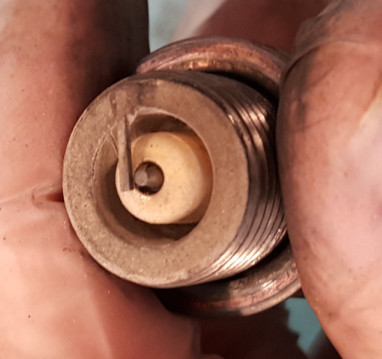
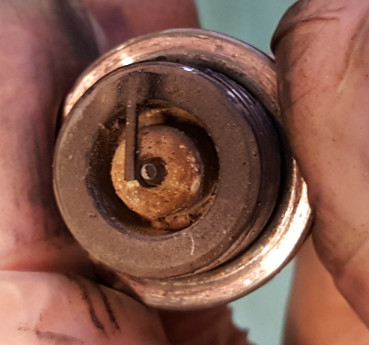
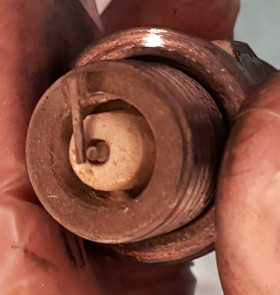
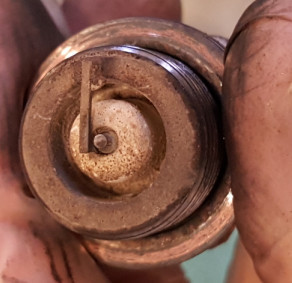
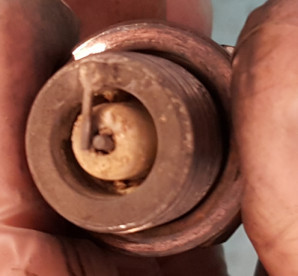
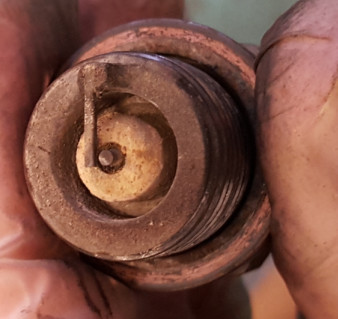
and the oil loss is down to 1qt in 4hrs.
How many hours on those plugs ?
I’m still surprised by the amount of lead build-up on some of those plugs yet the top was has none …
IIRC, 1qt / 4hrs has been the norm since the beginning of your trials ?
9 hours, and Yes, historically.
1 in 4 to 1 in 5, probably, allowing for the way most people account for oil loss i.e. they start at say 10 and do the service at say 7, account for the 5 they added, but “forget” the 3 (10-7) which they should also have accounted for 